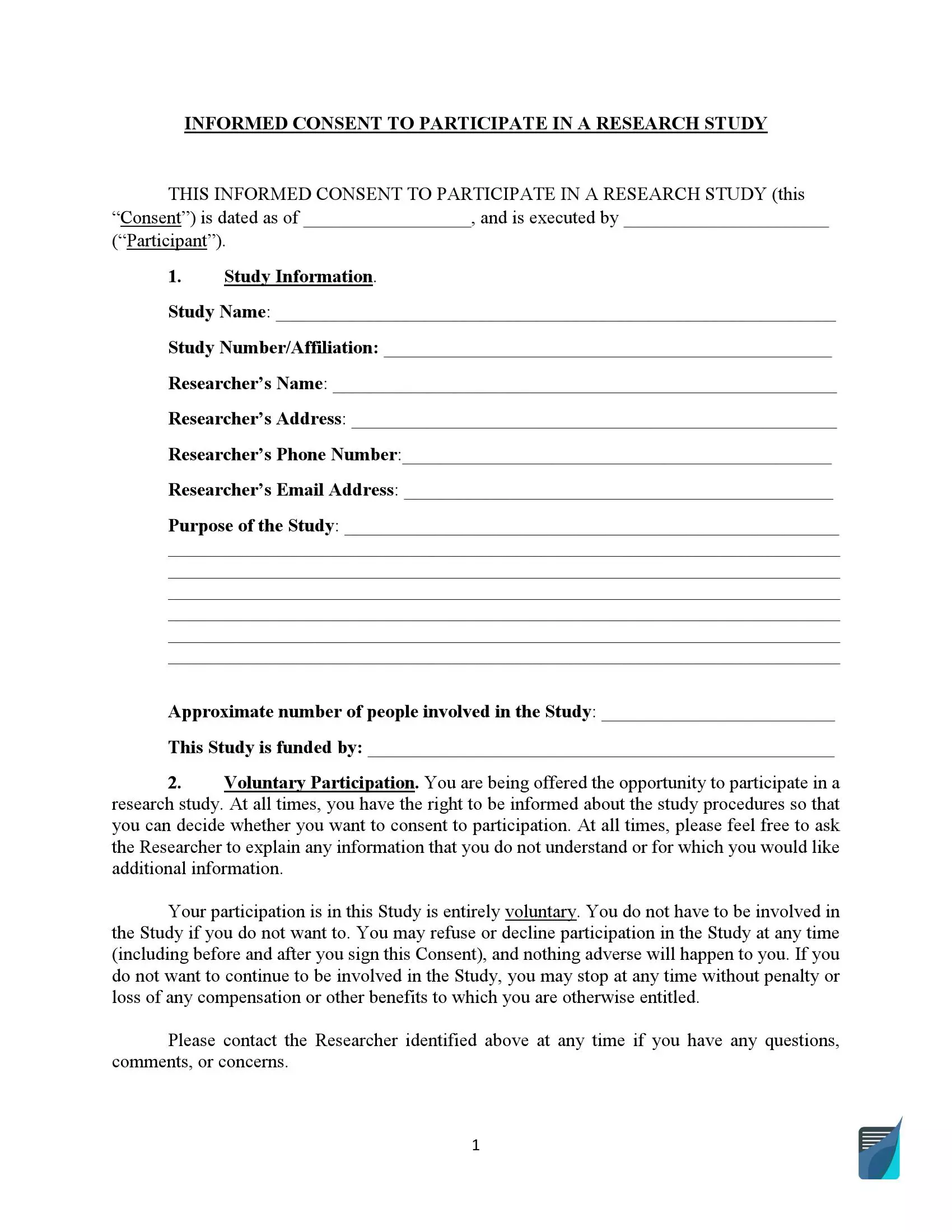In the intricate tapestry of the research landscape, the thread of informed consent weaves through every study, binding together the aspirations of researchers and the rights of participants. It is not merely a bureaucratic formality; it is the cornerstone upon which ethical research stands—an unmistakable commitment to respect, transparency, and autonomy.
Informed consent can be likened to a robust bridge, connecting the world of scientific inquiry with the realm of human dignity. Just as a bridge offers safe passage over tumultuous waters, a well-crafted informed consent process ensures that participants navigate the complexities of research without losing sight of their rights and well-being. It is crucial to understand that this process is comprehensive, requiring careful attention to its many facets.
The Essence of Informed Consent
The very essence of informed consent lies in its dual mandate: it informs and it consents. This indispensable formality demands that researchers elucidate the purpose, procedures, risks, and benefits associated with participation in a research study. Participants must emerge with a clear understanding, much like light piercing through the fog, allowing them to make enlightened decisions about their involvement. It sidesteps the shadows of ambiguity and empowers individuals to choose wisely.
But the process goes beyond mere knowledge dissemination; it requires comprehension. Participants must be able to grasp the information presented to them, interpreting it through the lens of their own circumstances. Researchers, therefore, bear the responsibility of demystifying scientific jargon, replacing it instead with accessible language that invites dialogue rather than distancing through complexity.
Elements of a Robust Informed Consent Form
Crafting an informed consent form is akin to assembling a finely tuned orchestra, where each instrument plays a vital role. The harmony of elements includes:
- Study Purpose: Clearly articulating the aims of the research forms the backbone of informed consent. Participants must see the bigger picture, understanding how their contribution may illuminate avenues for future knowledge.
- Procedures: A transparent explanation of what participation entails is critical. Researchers should delineate the expectations, duration, and any procedures involved, just as a conductor guides an orchestra through the intricacies of a symphony.
- Risks and Benefits: Herein lies a crucial balance. Participants must be made acutely aware of potential risks while simultaneously being informed of any possible benefits. This duality builds a sense of trust, akin to a safety net for high-wire performers.
- Confidentiality: Upholding participants’ privacy transforms informed consent into a shield, protecting individuals from the peering eyes of the unwarranted. Assurances of confidentiality fortify the relationship between the researcher and participant.
- Voluntariness: Participation should always be voluntary. Participants must have the freedom to decline or withdraw without penalty—a cardinal rule that respects individual autonomy.
- Contact Information: Providing details on how to reach the research team emphasizes accountability. Participants should know where to turn for answers—think of it as leaving a door ajar for dialogue.
Ethical Considerations and Cultural Sensitivity
Ethics serves as the compass guiding the informed consent process. Researchers must recognize the diverse backgrounds and values of potential participants. Cultural sensitivity becomes paramount; a one-size-fits-all approach can inadvertently alienate individuals from certain communities. A nuanced understanding fosters inclusivity, enabling researchers to craft consent documents that resonate with diverse populations.
Moreover, ethical considerations extend beyond the initial consent. The concept of ongoing consent reflects an understanding that circumstances may shift as research evolves. Just as a river can change course, so too can participants’ perceptions and contexts. Researchers must remain vigilant, revisiting and reaffirming consent throughout the study’s duration.
The Role of Technology in Informed Consent
As the digital age burgeons, technology redefines how informed consent is obtained and facilitated. E-consent platforms streamline the consent process, providing interactive interfaces that engage participants more dynamically than traditional paper formats. This technological metamorphosis brings forth the possibility of multimedia resources that can explain complex concepts through videos, infographics, and interactive decision aids, enhancing comprehension.
Nevertheless, while technology offers incredible advantages, it also poses challenges—most notably, ensuring that all participants possess equitable access to digital tools. Researchers must tread carefully, ensuring that no participant is left behind in this tech-savvy era.
The Future of Informed Consent
As we gaze into the horizon, the future of informed consent beckons with promise. Anticipated advancements in artificial intelligence may aid in personalizing consent experiences, tailoring explanations to individual comprehension levels and preferences. Nevertheless, the crux of informed consent will always hinge on the age-old principles of respect, transparency, and dignity. A testament to human relationships, it ensures that the bridge between participant and researcher remains steadfast and resilient.
In conclusion, informed consent is not merely paperwork; it is the embodiment of ethical research practices. By recognizing its significance, understanding its components, and adapting to the changing landscape, researchers build not just a form but a foundation for trust and integrity. As we navigate the waters of discovery, let us uphold the torch of informed consent, illuminating the path for all involved.
